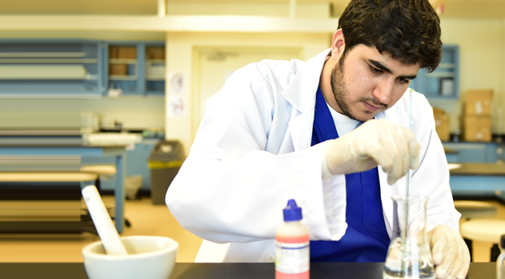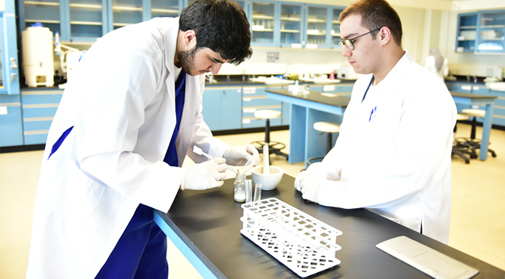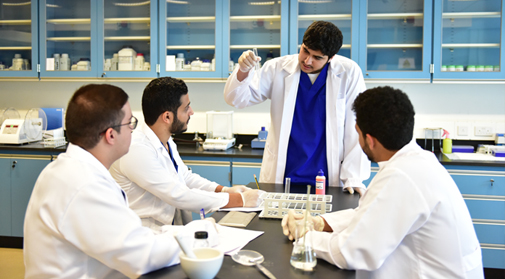Experiential Learning
An essential component of the Pharm.D curriculum is experiential learning; that is the practical application of what the students learn from didactic courses. This component was planned to help the students learn day-to-day skills, to develop professional maturity, and judgment gradually. In preparation to this stage, there was the curriculum design; with integrated pharmacotherapy courses that are run with weekly themes, where the students learn the following components;
a) Disease pathological mechanism “pathophysiology”
b) Drugs targeting these pathological pathways “pharmacology”
c) Management guidelines for the same disease “therapeutics”
d) Discuss various cases as examples of the pre-specified disease with co-existing conditions in “ case-based seminars”, and toward the end of the week;
e) Learn related practical skills such as “history taking, dispensing, counselling, and basic physical assessment” in “patients care and health system management lab” in our simulation center.
Accordingly the students are well-prepared to apply these knowledge and skills in an external environment. Accordingly they start three Introductory Pharmacy Practice Experience (IPPE) courses (IPPE 489, IPP 596, IPP 5X5); after completion of academic year 4, and throughout year 5. IPPE courses encourage the student to apply knowledge and competencies gained in the classroom to interact with patients and healthcare practitioners in a community, and hospital settings; (inpatient/outpatient pharmacy). Upon successful completion of IPPE courses, students can start the next phase of experiential education that is Advanced Pharmacy Practice Experience rotations (APPE 1-10) during academic year 6.
APPE rotations provide students with an opportunity to apply and expand their knowledge and skills, while developing professional attitudes and behaviors in a variety of pharmacy practice settings, including and not limited to; primary, acute, and chronic care settings where pharmacists are delivering patient care services to diverse populations. Also, other elective non-clinical rotations are offered including pharmacy administration and management, medication safety, automation and quality improvement.
“Experiential learning unit” that was established in College of Pharmacy to plan and organize these courses, and rotations, also help the students to train in pharmaceutical industry sectors during summer vacation, and to organize volunteering and providing the required pharmaceutical care required from hospitals as in the current COVID-19 pandemic circumstances.




